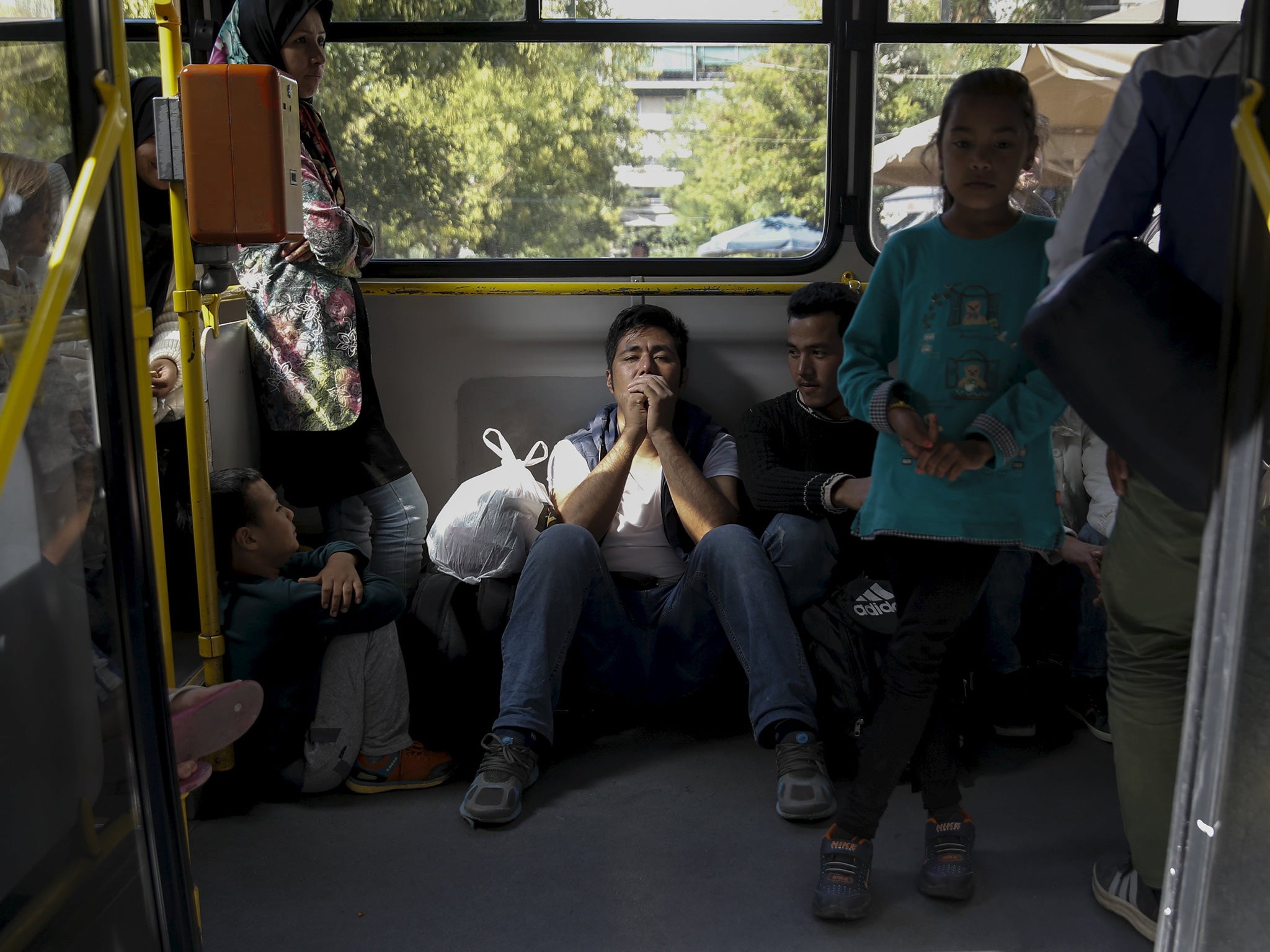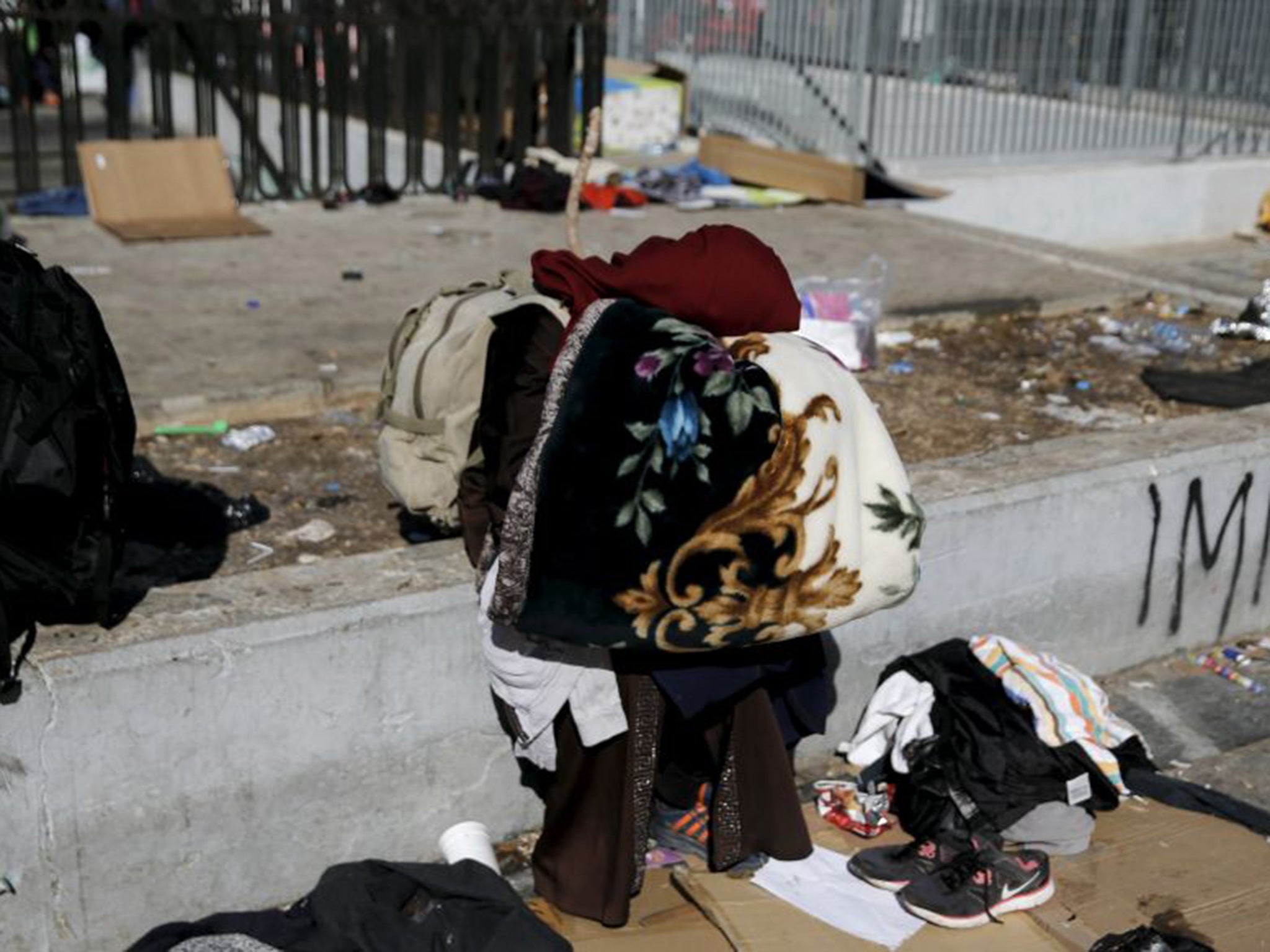Refugee crisis: Greece finds a legacy for its Olympics by housing refugees in empty stadiums
World View: Residents on Lesbos say the first Syriza government, which took power in January, did nothing about the refugees flooding through

They have been squatting in Victoria Square, in the heart of Athens, for months: a fraction of the tens of thousands of refugees flooding into Greece from Turkey, hoping to move on to Austria and Germany but blocked here.
But now the Greek government’s immigration minister has hit on a solution that, with hindsight, looks obvious. He has opened up one of the many stadiums on which Greece lavished vast sums for the 2004 Olympics and which – with the exception of the striking football stadium, refashioned for the Games by Sergio Calatrava – have been quietly rusting away unused ever since.
They have been glaring symbols of the reckless extravagance of those pre-bust years, but also of the inertia and rigidity of successive governments in failing to put them to any profitable purpose.
In recent days, some 400 to 500 refugees were ferried by bus to the Galatis indoor Olympic hall in the city, used for table tennis and gymnastics in 2004, while hundreds more were transferred to the former Olympic hockey stadium.
Yiannis Mouzalas, junior interior minister in charge of immigration in the new Syriza-led coalition government, told reporters in Victoria Square, “I ask residents to be patient… Victoria Square will be cleared. We are trying to reduce the pressure on the population so that it will maintain the stance of solidarity it has shown until now. We do not want them to become susceptible to far-right, racist and xenophobic views…”

Residents on the island of Lesbos told me during a recent visit that the first Syriza government, which took power in January, had done nothing about the refugees flooding through. But when Alexis Tsipras’s government resigned in August, the immigration minister of the caretaker administration that replaced it – the same Mr Mouzalas – had visited the island and taken some crucial steps. They were relieved to learn that Mr Tsipras has decided to keep this effective minister in place after returning to power last month. This week Mr Mouzalas again showed his worth.
Given the scale of the influx, other venues may also be opened up and dusted down for the new arrivals. One contender is the Olympic village, 12 miles north-west of the city, a large grid of neat cement homes, designed to house 10,000. It’s another symbol of how thoroughly Greece’s brave new aspirations curdled after the crash. Once the games were over, thousands of Greeks entered a lottery to win the right to buy a home in the village at a bargain price. Some of those who won the lottery are still there. But the utopian hopes for the place quickly crumbled as businesses left due to lack of demand, and planned schools and nurseries were never completed.
At the village’s only café, a rudimentary place, old geezers kill time gossiping. My arrival enlivened their morning a little. They explained how they were expected to pay back their mortgages in the normal way, but after the crash, a few of them stopped paying, and when the banks took no action the rest also stopped. Now they are squatting in their own homes. Most of them had planned to vote for Syriza, in the belief that, even though Mr Tsipras had signed up to the harsh bailout terms imposed by Brussels, he didn’t mean to follow through.
That may or may not turn out to be the case. But in the meantime, if Mr Mouzalas casts his eye in their direction, they may find their village enlivened in ways they did not expect.
Join our commenting forum
Join thought-provoking conversations, follow other Independent readers and see their replies
Comments
Bookmark popover
Removed from bookmarks